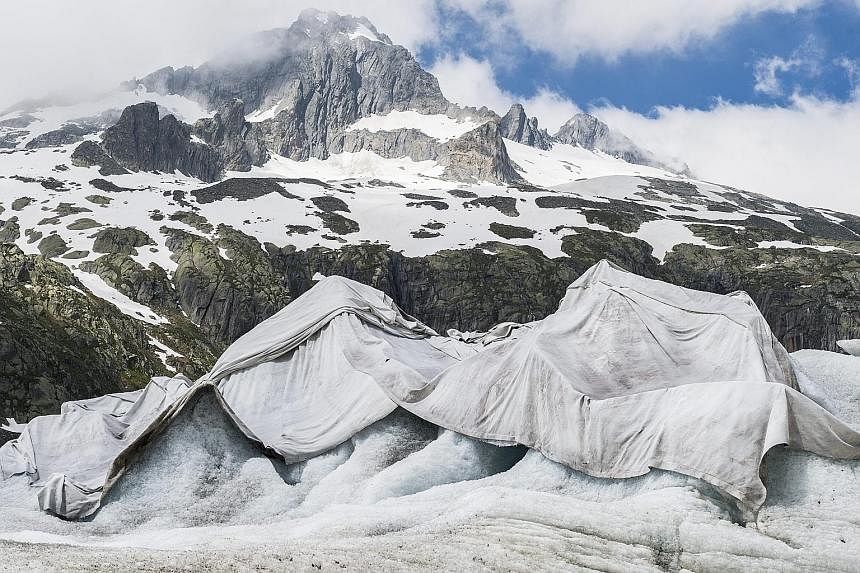NEW YORK - Brazil, China, India and South Africa have voiced disappointment over the failure of rich countries to come up with billions of dollars needed to help them sign on to a landmark climate change deal.
Ministers and top negotiators from the four key countries met in New York on Sunday to close ranks as talks on the climate deal head into crucial months before a Paris conference in December.
In a joint statement, they expressed "disappointment over the continued lack of any clear road map for developed countries to provide US$100 billion (S$135 billion) per year by 2020, as well as on substantially scaling up financial support after 2020".
The world's developed countries agreed in 2010 to mobilise US$100 billion a year by 2020 to help poorer nations adapt to the impacts of climate change and reduce their emissions.
Those commitments have fallen short by about US$70 billion, according to the World Bank.
"There is still a clear expectation and so I hope the developing countries can fulfil their commitment before the Paris meeting," China's envoy for climate change Xie Zhenhua told reporters.
World governments will try to forge a new global deal to address climate change at the UN climate conference in December, with both developed and developing countries committing to cutting greenhouse gas emissions.
Financing to help developing nations cut emissions and adapt to climate change remains a key issue.
South Africa's Environment Minister Edna Molewa stressed that "the four countries sitting around this table have been, on our own, doing a lot of work" on climate change.
"It is important that this scaling up happens," she said. "Adaptation requires a lot of money."
India's chief negotiator Ravi Prasad emphasised the need for developed countries to share emission-cutting and clean- energy technology with poor nations to bring them on board the global effort to address climate change.
"Without the concomitant flow of technology support, for many developing countries and poor economies, it will be impossible to move on to any such trajectory in the near future," said Mr Prasad.
While pressing demands for climate financing, the four countries stressed that they will be working closely together in the months ahead to help clinch a deal in Paris that they said was urgently needed.
Brazil's Environment Minister Izabella Teixeira said the four countries were committed to working hard to avoid a repeat of the 2009 Copenhagen climate conference that ended in failure.
"We cannot postpone this agenda, this agreement," said Ms Teixeira.
China's Mr Xie said negotiations were achieving progress.
"We are eliminating differences. We are very positive and very hopeful for the success of the Paris meeting," he said.
China, the world's biggest greenhouse gas emitter, has joined forces with India, the third largest emitter, along with Brazil, which ranks among the top 10, and South Africa, which boasts the continent's most developed economy.
China is expected to unveil its long-awaited national pledges to reduce carbon emissions beyond 2020 as Chinese Premier Li Keqiang visits Belgium and France this week, state-run newspaper China Daily said yesterday.
AGENCE FRANCE-PRESSE

